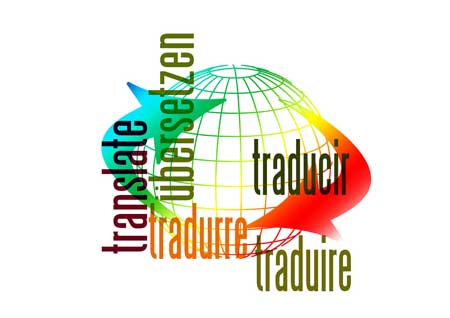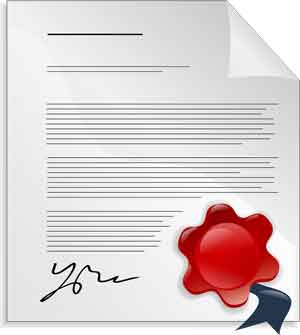Often times our clients request a certified translation, but what exactly does it mean to have a translation “certified”, and is it the same as a legal translation or a notarized translation? Read on for a brief breakdown of the three main types of professional translation services, and what they are used for…
What Are The Different Types of Professional Translation Services ?
There are a variety of professional translation services available throughout the industry, and not all of them mean the same thing depending on where in the world you are contracting translation. One such example would be Sworn Translations which are common in European countries, but which do not formally exist in the United States.
When determining what type of professional translation services you need, it’s important to understand the difference between the various options available to you. Often times, depending on what the translation will be used for, there will be certain requirements you need to abide by.
In this post we will cover three main types of professional translation services:
- Industry Specific Translations
- Certified Translations
- Notarized Translations
Industry Specific Translations
Industry specific translations simply refer to professional translation services performed for a particular industry. They are often specialized as every industry has terminology and concepts that are unique to the business being performed.
For example, legal translations are often performed when a document is used as evidence in a court of law, and must be translated into the language of the jurisdiction in which the court proceeding takes place. Legal translations in particular need to be done adhering to the laws of the jurisdiction or country where the translation will be used. Legal translations may also be needed when filing for intellectual property or when undergoing immigration processes.
Most translation agencies will break their offerings down by industries, and at Language Connections we offer the following:
- Education Translation Services
- Government Translation Services
- International Development Translation Services
- Life Sciences Translation (includes Clinical Trial, Healthcare, Medical Device, Pharmaceutical, and Scientific Text Translation)
- Business Translation Services (includes Marketing & Advertising, and Financial Translation)
- Legal Translation (includes Patent/IP, Immigration, FCPA/International Law, and Corporate Law Translation)
- Technical Translation Services
Best practices for performing industry specific translations require that the translator working on your document have experience or subject matter expertise in the particular industry in question.
Certified Vs Notarized Translations
 Certified Translations
Certified Translations
For a Certified Translation, the translator or agency that performs a translation presents a signed statement stating that the translation of the source document they completed is accurate.
The translator is not required to be a certified translator (one who passes a translation exam and receives certification from an accredited organization) in order to produce a Certified Translation.
Translation certification is often needed for legal translations, but they are not the same thing. Translation agencies prove that a translation is certified by providing a certificate of accuracy.
Notarized Translations
For a Notarized Translation, a translator requests the services of a Notary Public – a government appointed official that is responsible for authenticating documents. When getting a translation notarized, the person who completed the translation must sign an affidavit, or a written statement certifying that their translation is accurate.
In some instances, a translator will be asked to swear an oath, affirming that their translation was precise. The Notary Public then verifies the identity of the translator and places a seal on the document, but they do not assess the quality of the translation itself.
Circumstances for Needing Industry Specific, Certified and Professional Translation Services

This necessitates some level of knowledge about the industry in question on the translator’s part in order to provide the most accurate and clear translation possible. For certain industries this is a vital part of doing business – clinical trial document translations for example must adhere to the Food and Drug Administrations’ regulations. If they are translated poorly or incorrectly they may not be accepted, and time to trial could be seriously delayed.
Certified and notarized translations on the other hand are often required by governing bodies to prove the authenticity of a translation. For example, translations are almost always required when dealing with immigration services. The U.S. Citizenship and Immigration Service (USCIS), necessitates that any document written in a foreign language must have a certified English translation presented with it.
As previously mentioned, the FDA is another government agency that contains translation guidelines including certification. The FDA’s repository for proceedings, Dockets Management, calls for documents written in a foreign language to also be submitted with a certified English translation.
Usually you will not be asked for both a certified and notarized translation, as having a certified translation should meet most translation requirements.
Why Should You Get A Translation Notarized?

So why would you get a translation notarized?
The main reason behind getting a notarized translation lies in security. A notarized translation helps to prevent fraud and any fraudulent signatures with a particular translation. When a translator’s identity is validated, this acts as a safeguard for the translation itself. In an age where identity theft and fraud are very frequent crimes, the job of a public notary helps to reduce the threat of these crimes.
Notarized translations also deem a transaction official; when presenting a notarized document in a foreign country, the seal gives the document legitimacy, as opposed to presenting a document that has only been certified. Consequently, the importance of a notarized translation cannot be overlooked.
Now that you know the difference between the various types of professional translation services, you’re ready to determine what exactly you need for your particular project! Remember that you should always request a translator with experience in your particular industry, and that most governing bodies will explicitly tell you whether or not you need a notarized or certified translation (but you can always check their requirements to be sure).
At Language Connections our translators are vetted to ensure industry specialization, and our translation prices always include certificates of accuracy, bypassing the extra costs some agencies place on translation certification!
Learn More About Our Certified Translations Services!
Sources:
- https://www.morningtrans.com/when-to-use-certified-vs-notarized-translations/
- https://www.nationalnotary.org/knowledge-center/about-notaries
- https://legaltranslation.blogs.sas.ac.uk/articles/what-exactly-is-legal-translation/
- http://www.k-international.com/blog/what-is-legal-translation/
- https://www.uscis.gov/ilink/docView/SLB/HTML/SLB/0-0-0-1/0-0-0-11261/0-0-0-11630/0-0-0-11646.html#0-0-0-9457
- https://www.state.gov/m/dghr/flo/154965.htm
- https://www.accessdata.fda.gov/scripts/cdrh/cfdocs/cfcfr/CFRSearch.cfm?fr=10.20
- http://www.notarylearningcenter.com/np_docs.html
- http://public.getlegal.com/legal-info-center/what-is-a-notary-and-why-do-we-notarize-documents/
About Language Connections:
Language Connections is one of the top language service companies in the US. Over the last 30 years, we’ve focused on providing the best business translation services, interpreting services, as well as interpreter training and customized language training programs. In addition to top-tier corporate language training, we offer certified corporate interpreters and professional business translation services in 200+ languages. Our network includes linguists with backgrounds in all major industries. They’re ready to meet your needs, whether they’re for technical translation services, legal translation, government translation services, international development translation services, education translation services, life sciences translation, or something else. Reach out to us today for a free quote on our cost-efficient and timely translation services, interpreters, or other linguistic services.
Language Connections Inc.
2001 Beacon Street, Suite 105,
Boston, MA 02135
Phone: +1-617-731-3510
Email: service@languageconnections.com


 Certified Translations
Certified Translations